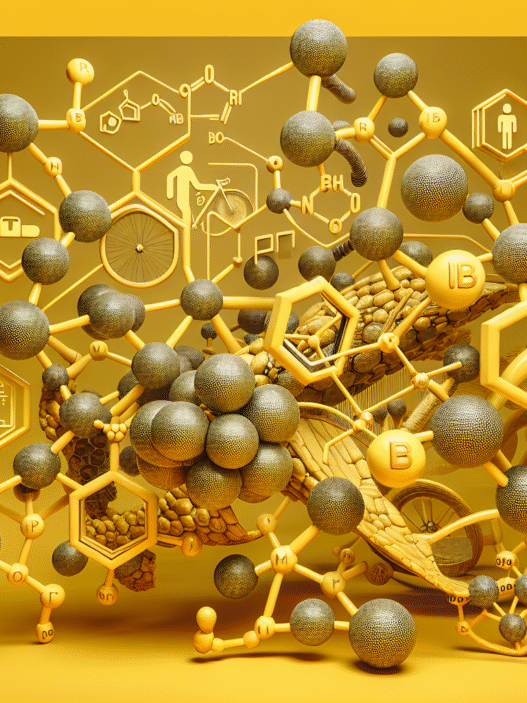Berberine Benefits for Health
Berberine is gaining recognition in the realm of health, particularly for its positive effects on blood sugar, weight management, and heart health. Research highlights its potential as a powerful supplement in these areas.
Blood Sugar Regulation
Berberine has demonstrated significant effectiveness in lowering blood sugar levels, particularly for individuals with type 2 diabetes. One study noted a remarkable 20% reduction in fasting blood sugar among participants taking 1 gram of berberine daily. Its mechanisms include improving insulin response and preventing excess glucose production in the liver, thereby enhancing overall blood sugar control.
| Study | Participants | Dosage | Fasting Blood Sugar Reduction |
|---|---|---|---|
| 2008 Study | 116 | 1 gram/day | 20% |
Weight Management
In terms of weight management, berberine has shown promise as well. A dose of 500 milligrams taken three times daily resulted in an average weight loss of about 5 pounds over 12 weeks among individuals dealing with obesity. Additionally, findings from a review suggested that berberine exhibits antiobesity effects, shown by reductions in body weight and food intake in animal studies (Healthline, Medical News Today).
| Study | Participants | Dosage | Weight Loss |
|---|---|---|---|
| 12-week Study | Obese Individuals | 500 mg, three times/day | 5 pounds |
Heart Health
Berberine’s influence extends to cardiovascular health as well. Studies have shown that it can lower levels of total cholesterol and triglycerides while increasing HDL (good) cholesterol. By positively affecting lipid profiles, berberine may significantly reduce the long-term risk of heart disease. In conjunction with standard heart disease treatments, berberine supplements may improve symptoms like fatigue and irregular heartbeat without notable side effects (Healthline, WebMD).
| Study | Effects Observed | Outcomes |
|---|---|---|
| Cardiac Studies | Lower Total Cholesterol, Lower Triglycerides | Reduced heart disease risk factors |
The promising results regarding the benefits of berberine make it a significant supplement to consider for those interested in improving their health. For more insights into berberine’s potential, explore berberine benefits and berberine supplements.
Berberine’s Potential in Skin Health
Berberine, a compound derived from various plants, has shown considerable promise for enhancing skin health. Its multifaceted effects include acne management, anti-inflammatory properties, and antioxidant activity, positioning it as a potential ally for those interested in functional medicine and holistic wellness.
Acne Management
Berberine may aid in the management of acne by exhibiting anti-inflammatory, antioxidant, and antimicrobial properties. These characteristics make it beneficial for individuals suffering from acne vulgaris (JDD Online). By reducing inflammation and fighting bacteria, berberine helps to alleviate breakouts and prevents new ones from forming.
| Benefit | Description |
|---|---|
| Anti-inflammatory | Reduces redness and swelling associated with acne. |
| Antimicrobial | Fights acne-causing bacteria on the skin. |
| Antioxidant | Protects skin cells from oxidative stress. |
Anti-inflammatory Properties
The anti-inflammatory effects of berberine contribute significantly to its potential in skincare. Inflammation is a common underlying factor in various skin conditions, including acne and rosacea. By targeting the inflammation pathway, berberine can help improve the overall appearance and health of the skin. Taken regularly, it may soothe irritated skin and support a more balanced complexion. The ability to manage inflammation makes it an interesting component in the quest for effective skincare solutions.
Antioxidant Effects
Berberine also acts as a powerful antioxidant. It helps neutralize free radicals, which can cause oxidative stress and lead to premature aging of the skin. By incorporating berberine into a skincare regimen, individuals may enhance their skin’s resilience against environmental damage. This antioxidant activity can lead to a more youthful appearance and improved overall skin texture.
| Antioxidant Benefit | Effect |
|---|---|
| Neutralizes free radicals | Prevents cellular damage and aging. |
| Enhances skin resilience | Protects against environmental stressors. |
| Improves skin texture | Contributes to a smoother and healthier look. |
The potential of berberine for skin health extends beyond traditional uses, offering holistic benefits that align well with modern health approaches. For those interested in exploring berberine supplements, it’s recommended to research product quality and consult healthcare professionals to determine the best options for personal health needs.
Exploring Beyond Traditional Uses
Depression Support
Recent studies have indicated that berberine may offer potential support for individuals experiencing depression. Although more research is necessary to establish its efficacy, preliminary findings suggest that berberine’s influence on the AMP-activated protein kinase (AMPK) pathway could contribute to improvements in mood and energy levels. This pathway regulates cell energy, which is crucial for mood stabilization and may play a role in alleviating depressive symptoms (Youth & Earth).
In assessing the benefits of berberine for mental health, it’s important to keep in mind that individual responses may vary. Anyone considering berberine as a supplementary treatment for depression should consult their healthcare professional for personalized advice.
Fatty Liver Management
Berberine has shown promise in helping manage fatty liver conditions, particularly non-alcoholic fatty liver disease (NAFLD). Initial studies suggest that this compound can reduce fat accumulation in the liver, potentially improving liver function and overall health. One study demonstrated that participants taking berberine experienced positive changes in liver enzyme levels, which are vital indicators of liver health.
In addition to its effects on liver fat levels, berberine may also impact factors related to metabolic health, such as blood sugar levels and lipid profiles. Integrating berberine into a broader holistic approach—including dietary changes and physical activity—could enhance outcomes for those managing fatty liver disease (Healthline).
For more information on the versatility of berberine in various health areas, including its implications for weight loss and blood sugar regulation, refer to our detailed exploration of berberine benefits.
Dosage and Recommendations
Optimal Dosage
The recommended dosage of berberine varies based on individual needs and health conditions. According to studies, a typical dosage ranges from 500 mg to 1,500 mg per day. It is often advised to take berberine in three equal doses of 500 mg, which should be consumed before meals to enhance its effectiveness.
| Dosage Amount | Frequency | Total Daily Dosage |
|---|---|---|
| 500 mg | Three times daily | 1,500 mg |
| 500 mg | Twice daily | 1,000 mg |
| 500 mg | Once daily | 500 mg |
It is crucial for individuals to understand their specific health needs and consult available resources such as berberine benefits before initiating supplementation.
Consultation with Healthcare Professional
Before beginning any new supplement, including berberine, it is essential to consult with a healthcare professional. This step is especially important for individuals who are currently using other medications or have pre-existing health conditions. A healthcare provider can offer personalized recommendations and monitor for potential interactions or side effects. For more details on the potential effects and interactions of berberine, consider reviewing information on berberine supplements and berberine and kidney function.
Taking the time to ensure the right dosage and seeking professional guidance can maximize the benefits of berberine for skin health and other aspects of wellness.
Berberine Interactions and Side Effects
Understanding the interactions and potential side effects of berberine is important for those considering its use for skin health and overall wellness. Although berberine has several benefits, it may also cause complications when combined with certain medications or in some individuals.
Interaction with Medications
Berberine can interact with a variety of medications, which may alter their effectiveness or increase the risk of side effects. Below is a table summarizing some key interactions:
| Medication Type | Interaction |
|---|---|
| Anticoagulants and Antiplatelet Drugs | May slow blood clotting, increasing the risk of bruising and bleeding (WebMD) |
| Diabetes Medications | Potentially lowers blood sugar levels, leading to hypoglycemia (WebMD) |
| Antihypertensive Drugs | May lead to lower blood pressure levels (WebMD) |
| Cyclosporine | Can decrease breakdown speed, leading to increased effects and side effects of cyclosporine (WebMD) |
| Liver Metabolized Medications | May change metabolism of medications broken down by the liver, impacting effectiveness and side effects (WebMD) |
Individuals who are on any of these medications should consult their healthcare provider before starting berberine supplementation.
Potential Side Effects
While berberine is generally considered safe for most people, it can still cause side effects. Commonly reported effects include:
- Gastrointestinal Issues: Some individuals may experience digestive discomfort such as diarrhea, constipation, or stomach upset.
- Skin Reactions: Rarely, some people may notice skin irritations or allergic reactions.
- Changes in Blood Pressure: Depending on the dosage and individual factors, berberine may potentially lower blood pressure, which could lead to dizziness or lightheadedness.
Monitoring one’s health is essential when introducing berberine into a regimen, particularly for those who may experience sensitive reactions. For further information on how berberine can be used safely, refer to our articles on berberine benefits and berberine supplements.
Recent Studies and Future Scope
Diabetes Management
Recent studies have highlighted the potential of berberine in managing diabetes. Research indicates that berberine can significantly lower blood sugar levels in individuals with diabetes by improving insulin response and preventing the liver from producing excess glucose. Furthermore, it aids in better overall blood sugar control. One study suggests that individuals using berberine have experienced a move from diabetic to normal fasting blood sugar levels, demonstrating its effectiveness in diabetes management (WebMD, Youth & Earth).
| Study Focus | Observed Outcome |
|---|---|
| Impact on Fasting Blood Sugar | Significant decrease in fasting levels |
| Insulin Response Improvement | Enhanced insulin response |
| Liver Glucose Production | Prevents excess glucose production |
Cholesterol Regulation
Berberine’s influence on cholesterol levels is another area of interest. Research shows that berberine can lower total cholesterol and triglyceride levels while increasing HDL (good) cholesterol. This action may enhance long-term heart health by improving several risk factors, including apolipoprotein B and LDL cholesterol.
| Cholesterol Type | Change with Berberine |
|---|---|
| Total Cholesterol | Decrease |
| Triglycerides | Decrease |
| HDL (Good Cholesterol) | Increase |
| LDL (Bad Cholesterol) | Decrease |
Blood Pressure Effects
The potential of berberine in addressing high blood pressure has also garnered attention. Some research indicates it may help reduce blood pressure levels, a key risk factor for heart disease. However, the evidence regarding its effectiveness remains mixed and of low quality, necessitating further investigation to confirm these findings (Medical News Today).
| Blood Pressure Impact | Research Insights |
|---|---|
| Potential Decrease | Evidence is mixed and low quality |
Studies continue to explore the multifaceted benefits of berberine beyond its traditional uses. Its role in gut health, anti-aging properties, and other health benefits are worth considering for those interested in holistic wellness. Details on further benefits can be found in related articles such as those on berberine for skin health and berberine supplements.





















